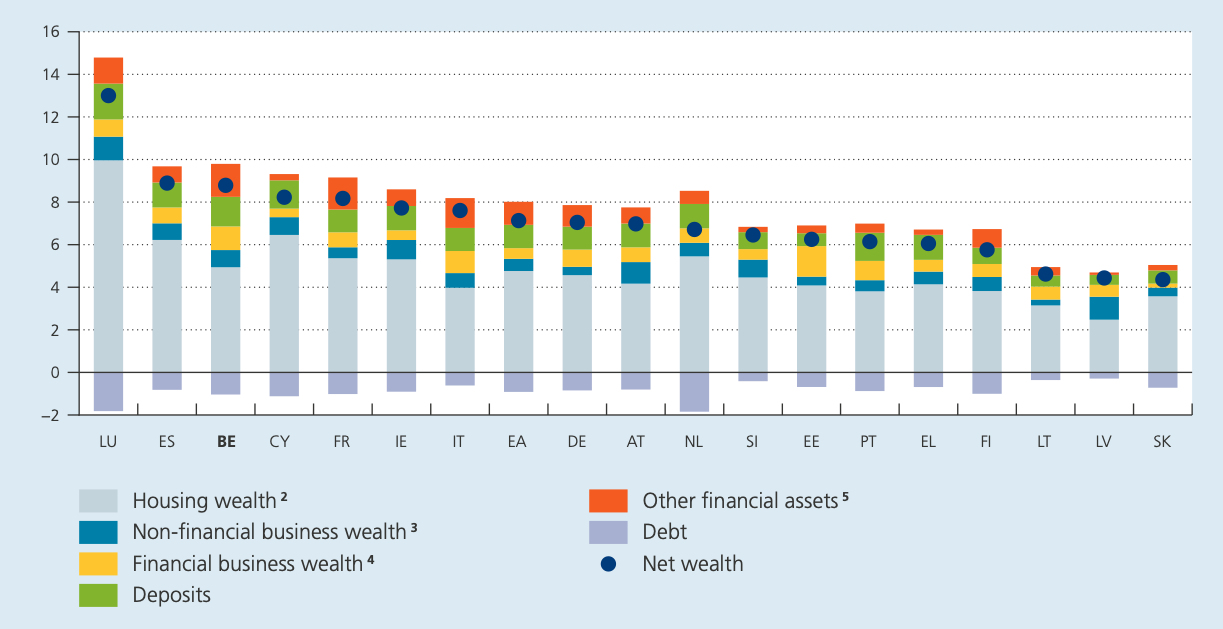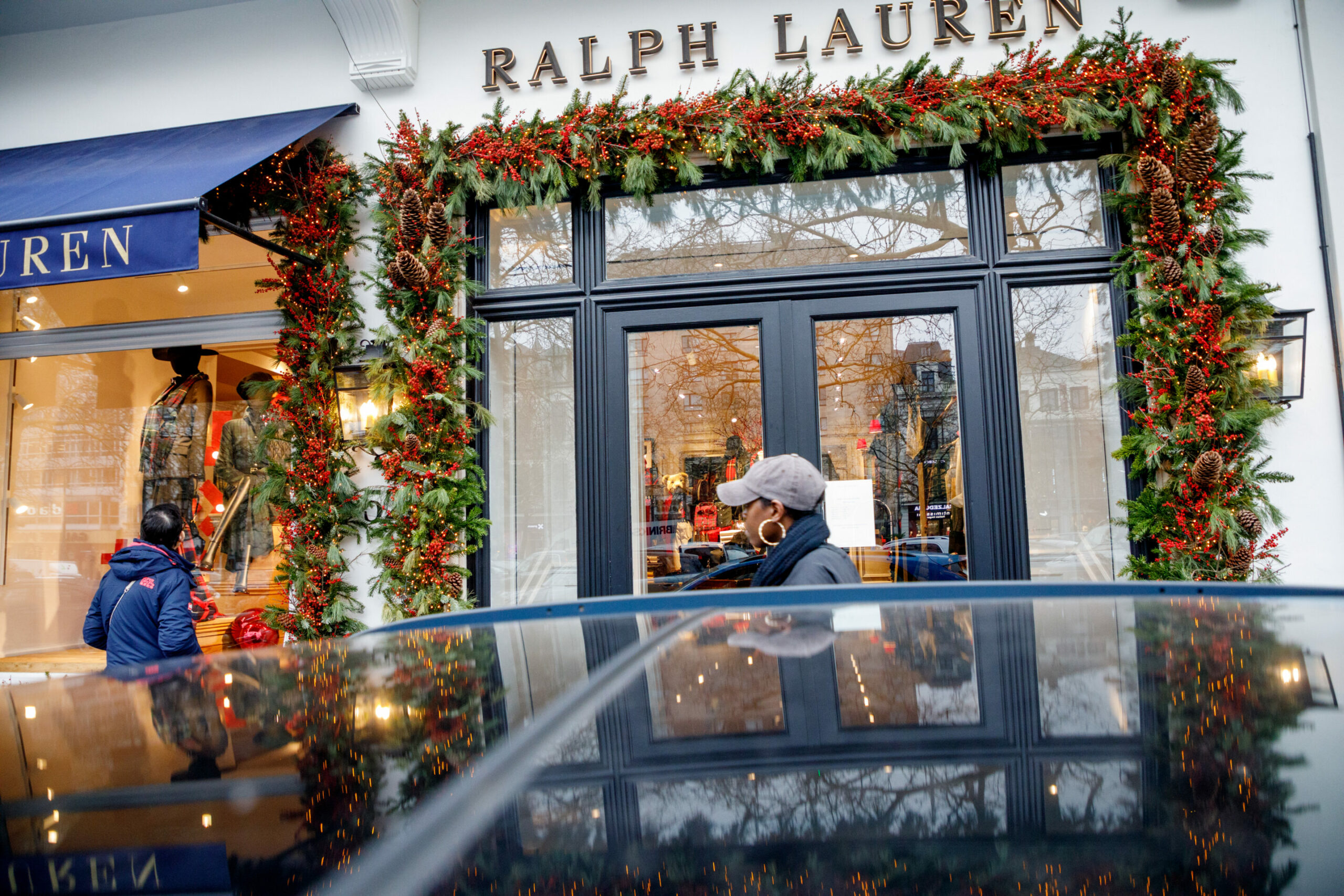People in Belgium are among the wealthiest in Europe, a report by the National Bank of Belgium (NBB) has shown. But how is this wealth distributed?
Belgian households are significantly wealthier than the eurozone average. Their total net wealth was estimated at €2,800 billion at the end of 2022.
"This equates to an average net wealth of slightly more than half a million (€555,000) per household, almost nine times the annual income," NBB experts noted. This includes financial assets (bank deposits, stocks, bonds), property, and vehicles, minus debts like loans. "This makes households in the country relatively rich in comparison to those in most other euro area countries."
The more wealth people own, the more choices they have regarding consumption and investment. It also helps protect people against the consequences of shocks, such as financial and energy crises.
Luxury Luxembourg
This places Belgium ahead of most eurozone countries. "However, the wealth here is only slightly higher than the levels observed in neighbouring countries."
The notable exception is Luxembourg, where household net wealth is equivalent to 13 times household income. Spain is in second place. The southern European country also has higher averages than Belgium but to a lesser extent.

The ratio of net wealth to gross disposable income in various European countries. Belgium ended in third place. Credit: NBB
Despite people in Belgium having a so-called "brick in their stomach" – referring to popular aspiration to own a house – half of Belgian household assets are in real estate, compared to 59% on average in the eurozone. In Luxembourg, this percentage is around 70%.
Around one-fifth of Belgian households' wealth (20%) consists of business wealth. "The remaining assets are deposits (14% of total assets) and shares in investment funds.
Unequal society?
When it comes to how evenly these benefits are distributed across the population, Belgium ranks in the middle. In The Netherlands, there is slightly more equality, while the gap is larger in France and especially Germany. Austria has the highest level of inequality, and Malta has the lowest.
The experts did stress that certain socio-economic groups find it "particularly difficult to accumulate wealth", more so than in other euro-area countries. Single-parent families, low-income earners and people who do not own their home are generally less wealthy. "High wealth inequality may weaken social cohesion, interpersonal trust, and cooperation among citizens."

People pass by high fashion stores in the Avenue de la Toison d'Or. Credit: Belga/ Hatim Kaghat
However, the household’s main residence (HMR) – a component of wealth – plays a key role in reducing the level of wealth inequality, and here, Belgium scores well. "Belgium, where home ownership is widespread, exhibits the second most equal distribution of HMR wealth in the euro area."
The mean-to-median ratio (M/P50) – the average household wealth compared to that of a household in the middle of the distribution – confirms that wealth inequality in Belgium is on the low end. Its ratio (1.68) places Belgium as the fifth least unequal country. "A higher value indicates that wealth is more concentrated among richer households."

